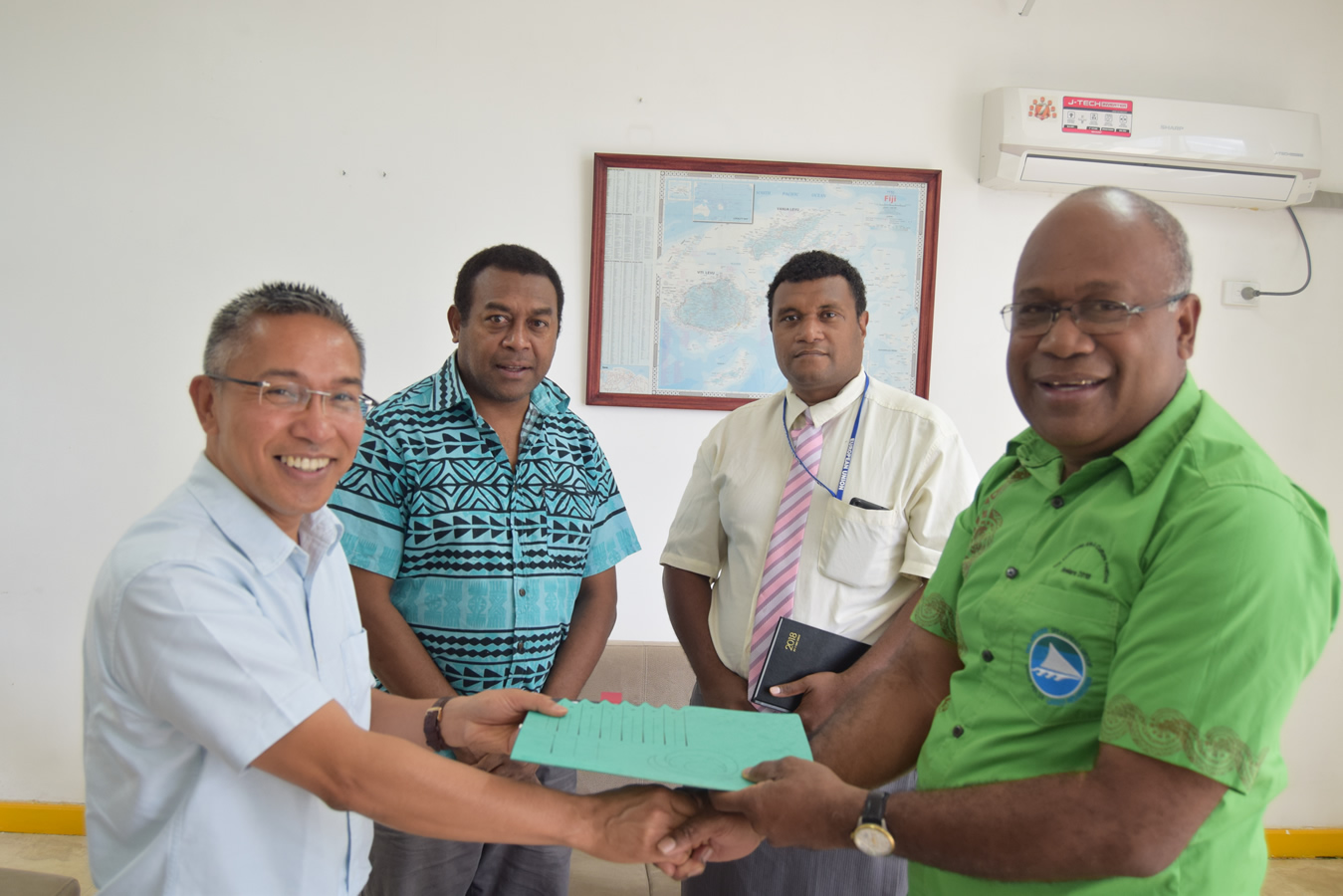The MSG Secretariat in close collaboration with the UNFCCC Secretariat will host a workshop on April 10 – 11, 2019 at the MSG headquarters in Port Vila, Vanuatu on validating the country climate finance assessments, needs and priorities to finalize the MSG Needs-based Climate Finance Strategy and to develop a Means of Implementation Framework.
The aim of this project is to enable greater access and mobilization of public and private finance both domestic and international for climate adaptation and mitigation programs and projects outlined in national plans such as in the National Adaptation Plans of Action (NAPAs), National Adaptation Plans (NAPs), National Communications (NATCOMs) and Nationally Determined Contributions (NDCs) which are linked to national and sectoral development plans. The strategy builds on core findings from the National Economic, Environment and Development Study (NEEDS) conducted by the UNFCCC Finance, Technology and Capacity Building Programme.
The MSG climate finance strategy will determine the climate finance landscape, financing needs and priorities at national and sectoral levels in the MSG. Where data is available, climate finance flows for mitigation and adaptation requirements will be mapped as a part of the climate finance landscape assessment and to determine costs of mitigating and adapting to climate change in order to design strategic solutions driven by the member countries and their needs to better access and mobilize climate finance.
Key national agencies involved in the assessments and strategy development are Ministries and Departments of Climate Change, National Development Planning and Aid Coordination and Finance and Treasury. In addition, partners UNDP, PIFS, SPC, GIZ, ADB, IGES, NDC Partnership (UNFCCC) and Commonwealth Climate Finance Access Hub have been invited to attend to engage in expert discussions and analysis of climate finance with MSG government officials towards finalizing the Strategy and a Means of Implementation Framework during the workshop.
The MSG Secretariat Director General Ambassador Amena Yauvoli expressed his deep gratitude on behalf of the MSG to the UNFCCC Secretariat and valued Partners UNDP, SPC, PIFS and GIZ for their firm commitment and partnership in the project activities to conduct the climate finance assessments and the strategy development since October 2018 when the project commenced implementation. He further thanked the UNFCCC Secretariat for taking up the MSG request during the UNFCCC COP 23 in Bonn 2017 for this project to be implemented in the MSG.
Furthermore, the MSG Secretariat Director General Ambassador Yauvoli re-iterated that finance is such a critical tool for implementation of activities in climate change, national development and in business – it is a very specialized and complex field with numerous public and private instruments that can be utilized to resource programs and projects. I am grateful that the MSG Needs Based Climate Finance Project in collaboration with the UNFCCC Secretariat was initiated to collect data and information on climate financing options both public and private and domestic and international sources for developing a sub-regional strategy supporting the MSG members.
Director General Ambassador Yauvoli highlighted that the additional finance options identified in the assessments apart from domestic finance include international finance flows (concessional – grants and soft loans) from Official Development Assistance (ODAs) which are government assistance to developing countries to support economic development and their welfare; private sector investments and the role of the financial markets such as the stock market, and the bond market which are all instruments that the members can strategically utilize to develop a climate finance strategy for implementation of their national climate action plans.
This workshop represents the verification and consolidation phase of national needs and priorities of national climate action plans as outlined in the National Adaptation Action Plans (NAPAs), National Adaptation Plans (NAPs), National Communications (NATCOMs), and Nationally Determined Contributions (NDCs). This will allow us to review, analyze the information and data from the countries collated so far (mostly from desktop research) in order to reach consensus on the key elements of the Strategy guided by the Members and to deliberate on a means of the implementation framework for the strategy and next steps.
The workshop outcomes and next steps will support the MSG member countries in enhancing internal institutional coordination and to support needs and priority planning and means of implementation on climate change adaptation and mitigation programs and projects through a multi-stakeholder approach involving government, civil society, and the private sector.
Director General Ambassador Amena Yauvoli further stated that he envisages the rollout of this project initiative to the rest of the Pacific Island countries as soon as possible so that our countries have strategic and concrete climate finance plans to discuss with potential partners on the means of implementation – a step deeper than broad policy statements which has been the status quo for the last number of years not only in our MSG and Pacific region but in many countries of the world (both Annex I and non-Annex I countries) under the UNFCCC.
In echoing the recent announcement by the UN Secretary-General that he would like to see Leaders come to the 2019 UN Climate Summit in the margins of the UN General Assembly with plans instead of policy statements, Director General Ambassador Yauvoli said it is timely that the MSG Climate Finance Strategy and Means of Implementation Framework can be used by our Leaders at this event. In addition, he thanked the UNFCCC for organizing a side event for the MSG Climate Finance Strategy to be presented at a finance side event during the 50th sessions of the UNFCCC Subsidiary Bodies meetings from 17-27 June 2019 in Bonn, Germany.
Source: MSG Secretariat Media Release


